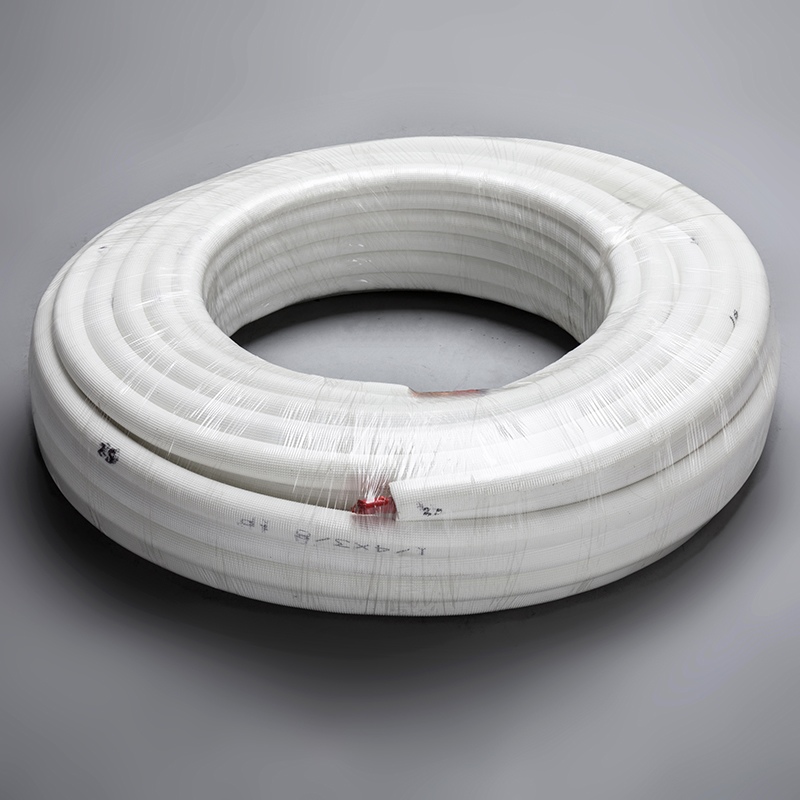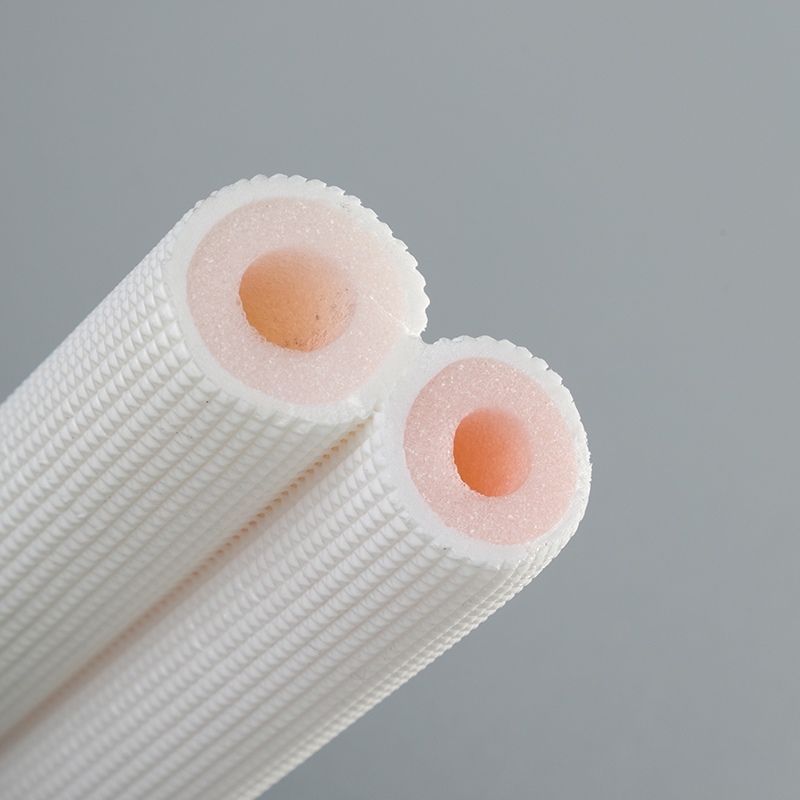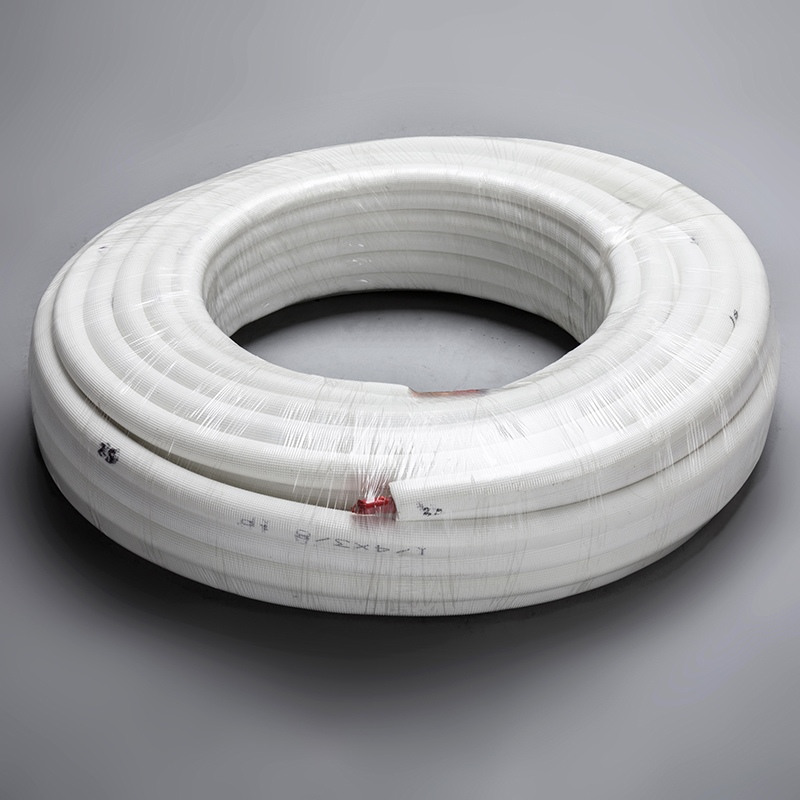Copper Pipes vs Aluminum: Which is Best for AC Systems?

In the realm of air conditioning systems, selecting the optimal material holds paramount significance. Write a 'Comparison' blog post on 'Copper pipes vs other materials in air conditioning systems'. Copper and aluminum stand out as prevalent choices, each with distinct attributes. This blog aims to meticulously compare these materials to ascertain the superior option for AC systems.
Thermal Conductivity

When comparing Copper Pipes and Aluminum Pipes in terms of thermal conductivity, it is essential to understand the distinct properties each material offers.
Thermal properties of copper
Copper boasts about twice the thermal conductivity that aluminum possesses for heat transfer. This characteristic makes copper a highly efficient option for cooling air within AC systems.
The superior thermal properties of copper allow for a more rapid exchange of heat, contributing to enhanced overall system performance.
Impact on AC system efficiency
The high thermal conductivity of copper directly influences the efficiency of an AC system by facilitating quicker and more effective heat transfer.
By utilizing copper pipes in AC systems, users can experience improved cooling capabilities and energy efficiency compared to other materials like aluminum.
Aluminum Pipes
While aluminum also plays a role in AC systems, it falls short in terms of thermal conductivity when compared to copper.
Despite its lower thermal conductivity, aluminum offers oxidation protection that copper lacks, providing an alternative with specific advantages.
Thermal properties of aluminum
Aluminum's thermal properties are not as efficient as those of copper, resulting in slightly slower heat transfer rates within AC systems.
However, the protective measures against oxidation make aluminum a viable choice for specific applications where corrosion resistance is crucial.
Impact on AC system efficiency
The lower thermal conductivity of aluminum may lead to slightly reduced efficiency in heat transfer within an AC system compared to using copper pipes.
Nevertheless, the added benefit of oxidation protection can make aluminum a suitable option depending on the specific requirements of the HVAC setup.
Comparative Analysis
In conclusion, when evaluating which material offers better thermal conductivity for AC systems, Copper Pipes emerge as the superior choice due to their exceptional heat transfer capabilities and overall efficiency.
Durability
Copper Pipes
Longevity and wear resistance
Copper pipes exhibit exceptional durability, known for their extended lifespan and robust wear resistance in various conditions. The longevity of copper pipes surpasses that of alternative materials, ensuring prolonged functionality without compromising performance.
Performance under various conditions
Under diverse environmental circumstances, Copper Pipes maintain their structural integrity and operational efficiency. Whether facing high temperatures or fluctuating humidity levels, copper pipes consistently deliver reliable performance, making them a dependable choice for AC systems.
Aluminum Pipes
Longevity and wear resistance
In contrast to copper, aluminum pipes offer moderate longevity and wear resistance. While not as durable as copper, aluminum pipes can withstand typical operating conditions with adequate maintenance practices.
Performance under various conditions
Aluminum Pipes demonstrate satisfactory performance across varying conditions. Despite being less durable than copper counterparts, aluminum pipes can effectively function in standard HVAC environments with proper care and upkeep.
Comparative Analysis
Which material is more durable?
When comparing the durability of Copper Pipes and Aluminum Pipes, it is evident that Copper Pipes outshine aluminum in terms of longevity and wear resistance. The superior durability of copper makes it the preferred choice for long-term reliability in AC systems.
Maintenance
When considering Copper Pipes in AC systems, it is essential to understand the maintenance requirements and address common issues promptly.
Maintenance requirements
Regular inspections of copper pipes are crucial to detect any signs of wear or damage early on.
Cleaning the pipes periodically helps prevent debris buildup and ensures optimal performance.
Applying a protective coating can enhance the longevity of copper pipes and mitigate corrosion risks.
Common issues and solutions
Leakage: If leaks occur, immediate repair is necessary to prevent further damage to the system.
Corrosion: Implementing corrosion-resistant coatings can safeguard copper pipes from degradation over time.
Blockages: Clearing any blockages promptly can restore proper airflow and maintain system efficiency.
In contrast, when focusing on Aluminum Pipes for AC systems, specific maintenance practices are required to uphold their functionality.
Maintenance requirements
Routine checks for aluminum pipe integrity are vital to identify potential vulnerabilities early.
Periodic cleaning aids in preventing dirt accumulation that could impede heat transfer efficiency.
Utilizing protective treatments can shield aluminum pipes from oxidation and extend their lifespan.
Common issues and solutions
Oxidation: Addressing oxidation promptly through protective coatings can prevent deterioration of aluminum pipes.
Condensation buildup: Regular maintenance to remove condensation buildup helps prevent mold growth and system inefficiencies.
Corrosion: Implementing anti-corrosion measures can protect aluminum pipes from environmental elements and ensure long-term performance.
Comparative Analysis
When comparing the maintenance requirements of Copper Pipes versus Aluminum Pipes, it becomes evident that copper necessitates more proactive care due to its susceptibility to corrosion. In contrast, aluminum requires regular upkeep primarily focused on preventing oxidation issues.
Corrosion Resistance

Copper Pipes
Susceptibility to corrosion
Copper pipes exhibit high resistance to corrosion, making them a durable choice for AC systems. The lack of significant corrosion in copper pipes ensures long-term reliability and minimal maintenance requirements.
Protective measures
To further enhance the corrosion resistance of Copper Pipes, protective coatings can be applied to prevent any potential degradation over time. These coatings act as a barrier against environmental factors that may lead to corrosion, ensuring the longevity of the pipes.
Aluminum Pipes
Susceptibility to corrosion
In contrast, aluminum pipes are more susceptible to corrosion compared to copper. The faster rate of corrosion in aluminum pipes necessitates regular maintenance and protective measures to prevent deterioration and maintain optimal performance.
Protective measures
To mitigate the effects of corrosion on Aluminum Pipes, anti-corrosion treatments are essential. These treatments form a protective layer that shields the aluminum from oxidation, reducing the risk of degradation and ensuring prolonged functionality.
Comparative Analysis
Which material is more resistant to corrosion?
When evaluating the corrosion resistance of Copper Pipes versus Aluminum Pipes, it is evident that copper surpasses aluminum in terms of resistance. Copper's low susceptibility to corrosion and ease of maintenance make it a superior choice for long-lasting and reliable AC systems.
Cost
Copper Pipes
Initial cost
Initial Investment: Investing in Copper Pipes for AC systems may require a higher upfront cost due to the material's superior quality and efficiency.
Cost-Effectiveness: Despite the initial expense, the long-term cost-effectiveness of copper pipes can outweigh the upfront investment by providing durability and optimal performance over time.
Long-term cost implications
Durability Benefits: The longevity of Copper Pipes translates to fewer replacements and repairs, reducing overall maintenance costs in the long run.
Efficiency Savings: The high thermal conductivity of copper contributes to energy efficiency, potentially lowering operational costs over the system's lifespan.
Aluminum Pipes
Initial cost
Affordability: Opting for Aluminum Pipes initially may present a more budget-friendly option compared to copper due to its lower material costs.
Cost Comparison: While aluminum pipes offer a cost-effective solution at the outset, considerations for long-term expenses are essential.
Long-term cost implications
Maintenance Considerations: The maintenance requirements of Aluminum Pipes could impact long-term costs, potentially necessitating more frequent upkeep compared to copper.
Lifespan Evaluation: Assessing the lifespan of aluminum pipes against copper is crucial in determining the overall cost implications over an extended period.
Comparative Analysis
Which material is more cost-effective?
When evaluating the overall cost-effectiveness between Copper Pipes and Aluminum Pipes, it is essential to consider factors such as initial investment, long-term durability, maintenance expenses, and energy efficiency. While copper may entail a higher upfront cost, its durability and efficiency can lead to greater savings and reliability in the long term compared to aluminum alternatives.
Overall Efficiency
Copper Pipes
Efficiency in AC systems
Copper pipes are renowned for their exceptional efficiency in air conditioning systems, providing rapid heat transfer and optimal cooling capabilities.
The high thermal conductivity of copper enables efficient cooling of the air, contributing to enhanced performance and energy savings.
Impact on energy consumption
Utilizing copper pipes in AC systems can lead to reduced energy consumption due to their superior heat transfer properties.
The efficiency of copper pipes results in lower energy usage, promoting cost-effectiveness and environmental sustainability.
Aluminum Pipes
Efficiency in AC systems
Aluminum pipes play a vital role in air conditioning systems, offering satisfactory efficiency levels for cooling applications.
While not as conductive as copper, aluminum provides adequate heat transfer capabilities within AC setups.
Impact on energy consumption
The use of aluminum pipes may impact energy consumption slightly compared to copper, but it remains a viable option for maintaining system efficiency.
Despite lower thermal conductivity than copper, aluminum contributes to effective cooling and operational performance in AC systems.
Comparative Analysis
Which material offers better overall efficiency?
In the comparison between Copper Pipes and Aluminum Pipes for overall efficiency in AC systems, Copper Pipes emerge as the superior choice. With their unmatched thermal conductivity and significant impact on reducing energy consumption, copper pipes stand out as the optimal solution for enhancing system efficiency and performance.
Reflecting on the comprehensive comparison between Copper Pipes and Aluminum Pipes in AC systems, the evidence strongly supports the superiority of copper in various aspects.
The investment in copper, despite being nearly double the cost of aluminum, proves advantageous due to its longevity and reduced maintenance requirements.
While aluminum presents a cost-effective alternative with similar benefits to copper, the enduring reliability and efficiency of copper make it the ultimate choice for optimal performance in AC systems.
Readers are encouraged to prioritize long-term benefits and consider the lasting value that copper pipes bring to their air conditioning setups.
See Also
Benefits of Opting for Copper Tubing in Aircon
Exploring Efficiency: Copper vs. Aluminum in Air Conditioning
Importance of Pure Copper Piping for Effective Aircon


